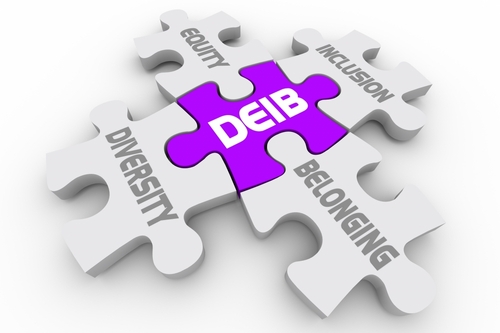Not so long ago, employers enthusiastically touted their diversity, equity, and inclusion (DEI) initiatives. But then the backlash set in. A growing number of employers–bowing to pressure from people opposed to what they see as “woke” policies–are dismantling their programs or at least being low-key about them. So now, many employers are exploring how they can capitalize on the benefits of DEI even in a changed environment.
Why Promote DEI?
Employers’ initial enthusiasm for DEI programs is understandable. Research has shown both employees and employers see a payoff in diverse workplaces. Promoting DEI was seen as not just the right thing to do but good business as well.
Recruitment and retention, creativity and innovation, and often a reputation attractive to customers are benefits employers can capitalize on in diverse workplaces, according to a March 2023 article from the University of Pennsylvania College of Liberal and Professional Studies.
Many employees also have favorable attitudes. The Pew Research Center reported in May 2023 that a majority (56%) of U.S. adults said giving attention to DEI at work is a good thing. The survey of 5,902 U.S. workers, including 4,744 who were not self-employed, was conducted when DEI was beginning to face the organized backlash.
The survey found that half or more of both men and women say focusing on increasing DEI at work is good, but women were more likely than men to say that. About two-thirds or more of Black (78%), Asian (72%), and Hispanic (65%) workers said that a focus on DEI at work is good, but just 47% of white workers said the same thing.
The Pew research also found mixed opinions on the value workers place on the diversity of their workplaces. Although most survey respondents said a focus on diversity is good, a smaller share placed great importance on going to work at a place that is diverse in terms of gender, race and ethnicity, age, and sexual orientation.
Despite largely favorable attitudes and solid business reasons for promoting DEI, the backlash is gaining strength. The list of employers scrapping at least some DEI initiatives is growing, including such prominent companies as John Deere, Tractor Supply, and Brown-Forman Corp., maker of Jack Daniel’s whiskey.
Why the Backlash?
The U.S. Supreme Court ruled in June 2023 that race-conscious admissions practices by colleges and universities violated both the equal protection clause of the U.S. Constitution’s 14th Amendment and Title VI of the Civil Rights Act of 1964. Although the case, Students for Fair Admissions, Inc. v. Harvard, applied to higher education, it prompted worries that employer DEI programs could face the same fate.
Influencers and groups such as the American Alliance for Equal Rights (founded by conservative activist Edward Blum, who also founded Students for Fair Admissions, Inc.) and Trump administration staffer Stephen Miller’s America First Legal began campaigns to get employers to drop what they characterize as unnecessary and unfair “woke” policies.
Even before the Supreme Court ruling, DEI programs faced challenges. A September 2021 survey from management consulting company Gartner showed that 42% of the 3,516 employees surveyed saw their employer’s DEI efforts as divisive, and 44% said that many of their colleagues felt alienated.
Another report from Gartner, released in 2022, identified three common types of pushback among employees: denial, disengagement, and derailment.
Denial is when employees don’t recognize disparities and therefore see no need for change. Disengagement is an unwillingness to support DEI even if they are aware of disparities. Derailment shows up in efforts to draw attention away from marginalized groups and divert it to dominant groups and other issues. A sign of derailment might show up in questions such as, “Why don’t I have a dedicated employee resource group?”
The Gartner report also notes that noticeable resistance to DEI is just part of the problem. Pushback that isn’t noticeable only becomes more entrenched.
Exploring Solutions
Back when employers were ramping up DEI efforts, they were eager to explain how recruitment was enhanced and an expanded point of view increased innovation and productivity. If they were right when they voiced those solid business reasons for promoting DEI, why abandon the concept?
Pushback from some employees as well as fears of lawsuits akin to the Harvard case may be to blame, but employers still have options. For example, Gartner’s 2022 report suggests one way to overcome opposition is to tailor DEI communications so that they don’t cast blame or shame on members of dominant groups.
A January 2024 article in Harvard Business Review also offers suggestions. The authors, Kenji Yoshino of New York University’s School of Law and the Meltzer Center for Diversity, Inclusion, and Belonging, along with David Glasgow, executive director of the Meltzer Center, say employers can avoid trouble by exploring different ways to adapt to a more conservative legal environment.
One suggestion: Conduct training on topics such as bias, allyship, or inclusive leadership and reach out to a broader range of colleges to attract a more diverse candidate pool.
Tammy Binford is a contributing editor.

